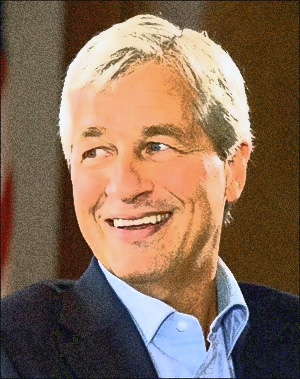3-Count Felon, JPMorgan Chase, Caught Laundering More Dirty Money

The International Consortium of Investigative Journalists (ICIJ) has once again managed to do what federal bank regulators refuse to do in the United States – come clean with the American people about our dirty Wall Street banks.
ICIJ dropped a bombshell investigative report yesterday about money laundering for criminals at some of the biggest banks on Wall Street, but you won’t find a peep about it on the front page of today’s Wall Street Journal or New York Times’ print editions. In fact, the New York Times, as of 6:44 a.m. this morning, hasn’t reported the story at all. The Wall Street Journal carries an innocuous headline, “HSBC Stock Hits 25-Year Low,” putting the focus on the British bank, HSBC, when its focus should be on the largest bank in the U.S., JPMorgan Chase, a serial felon.
JPMorgan Chase has already pleaded guilty to three criminal felony counts brought by the U.S. Department of Justice since 2014. Two of those counts related to money laundering and failure to file suspicious activity reports on the business bank account it held for Bernie Madoff for decades. JPMorgan Chase actually told U.K. regulators that it suspected Madoff was running a Ponzi scheme but it failed to share those concerns with U.S. regulators, even though it was required under law to do so.
The third felony count brought by the U.S. Department of Justice came one year later, in 2015. It related to JPMorgan’s involvement in a bank cartel that was engaged in rigging foreign exchange trading. The bank is currently under a criminal investigation for allowing its precious metals desk to be turned into a racketeering enterprise according to the Justice Department. Multiple JPMorgan precious metals traders have already been charged under the RICO statute, typically reserved for members of organized crime.
The ICIJ investigation is based on secret documents leaked from FinCEN, the Financial Crimes Enforcement Network, a unit of the U.S. Treasury. The documents “show that five global banks — JPMorgan, HSBC, Standard Chartered Bank, Deutsche Bank and Bank of New York Mellon — kept profiting from powerful and dangerous players even after U.S. authorities fined these financial institutions for earlier failures to stem flows of dirty money.”
The report has much to say about JPMorgan Chase:
To read complete report on Wall Street on Parade, click here
….
Every American should be horrified by this latest report from the ICIJ; every American should be outraged that the U.S. is now second only to the Cayman Islands for hiding dirty money for criminals; every American should demand that the New York Times and the Wall Street Journal give this story the front page coverage it deserves; and every American should look at this upcoming presidential election as the defining moment in whether the United States can be saved or will join a sad, tragic list of failed democracies.
*
Note to readers: please click the share buttons above or below. Forward this article to your email lists. Crosspost on your blog site, internet forums. etc.
Our thanks to the authors at Wall Street on Parade
Featured image is from WSOP

